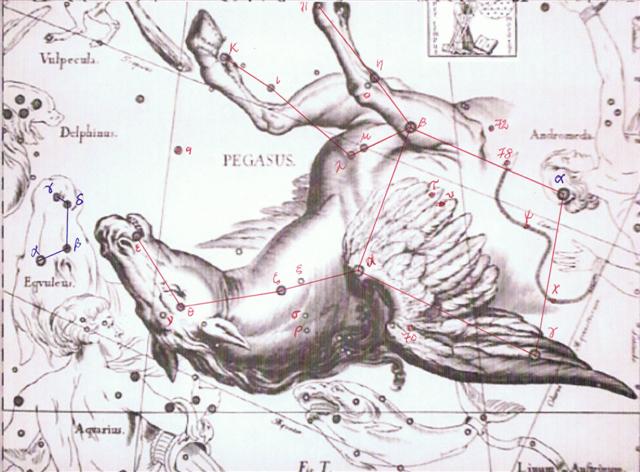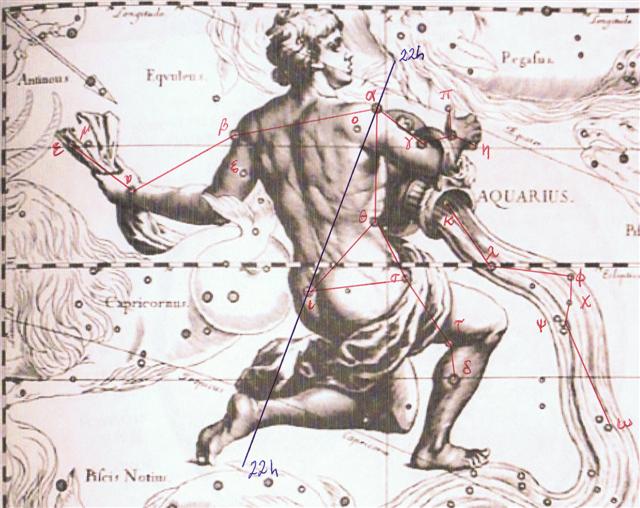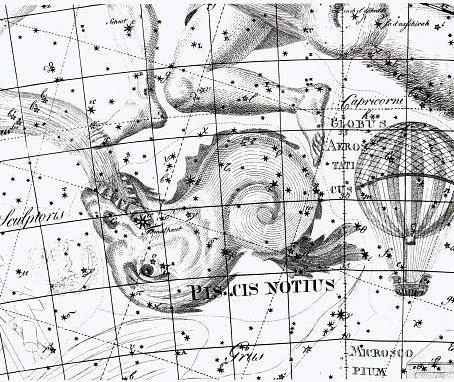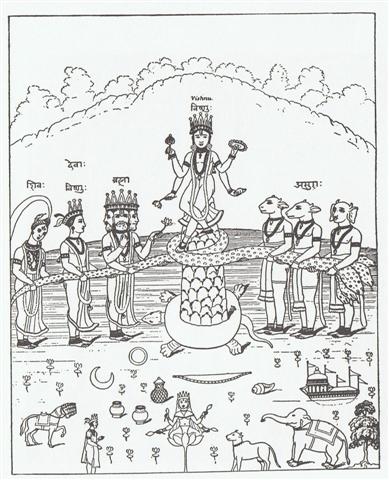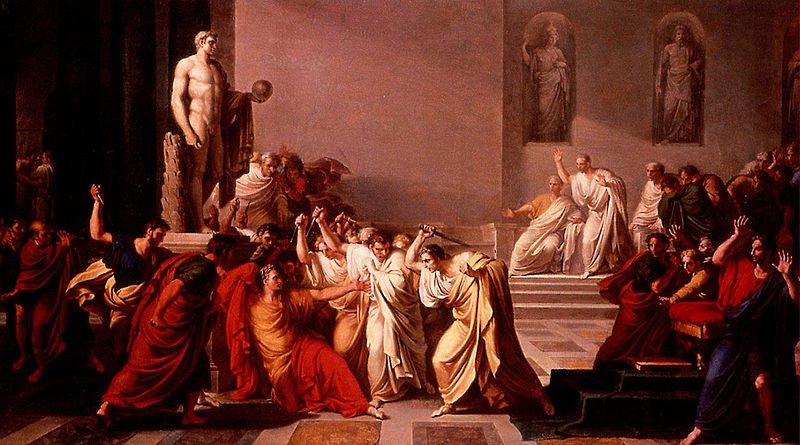This 'Taberna' should accordingly begin at Markab (α Pegasi).
However signs of drinking appear already earlier in the G text, viz. when the top of its roof became visible:
The Kalends of March was a point of π, where a new cycle was beginning. ... The brutes of spring caused the downfall of both Captain Cook and Julius Caesar. We are close to the key myth of mankind, that which explains the regeneration of sun and of growth. Once at least some people kept the tradition living. I became interested in what really happened at March 15 and reopened Henrikson to find out: Caesar was forewarned of the threat by the prophet Spurinna, who told him that a great threat was coming at Idus Martiae or just before [i.e. at 3-14]. The day arrived and Caesar was still living. He was walking to his meeting with the Senate when he happened to encounter Spurinna and told him jokingly that he was still alive. Spurinna calmely answered that the day had yet not ended. The Romans divided their months in two parts and the dividing point was Idus, which in some way was connected with full moon. March 15 was the midpoint of March, which is close to spring equinox. The old agricultural year defined the beginning of the year to the time when sun returned, and it was connected with Mars ...
... The chaotic tumult in the Curia (where the Senate had their meeting and where they killed Caesar) resulted in his dead body being left lying on the floor, while all the Senators panicked and ran out through the doors in different directions. They had planned to throw his body into the river, ... When it was evident that the years lay ready to burst into life, everyone took hold of them, so that once more would start forth - once again - another (period of) fifty-two years. Then (the two cycles) might proceed to reach one hundred and four years. It was called 'One Age' when twice they had made the round, when twice the times of binding the years had come together. Behold what was done when the years were bound - when was reached the time when they were to draw the new fire, when now its count was accomplished. First they put out fires everywhere in the country round. And the statues, hewn in either wood or stone, kept in each man's home and regarded as gods, were all cast into the water. Also (were) these (cast away) - the pestles and the (three) hearth stones (upon which the cooking pots rested); and everywhere there was much sweeping - there was sweeping very clear. Rubbish was thrown out; none lay in any of the houses ... but the time of plans and order was in the past. Instead, in the afternoon, three of the slaves of Caesar came and fetched his body, and carried him on a stretcher to his home south of Forum - and one arm was hanging down in the corner where the 4th slave should have been ...
|
|||||||||||||||||||||||||||||||||||||||||||||||||||||||||||||||||||||||||||||||||||||||||||||||||||||||||||||||||||||||
